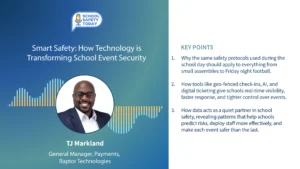At Least a Third of The World’s Schoolchildren Unable to Access Remote Learning
At least a third of the world’s schoolchildren – 463 million children globally – were unable to access remote learning when COVID-19 shuttered their schools, according to a new UNICEF report released today as countries across the world grapple with their ‘back-to-school’ plans.
“For at least 463 million children whose schools closed due to COVID-19, there was no such a thing as remote learning,” said Henrietta Fore, UNICEF Executive Director. “The sheer number of children whose education was completely disrupted for months on end is a global education emergency. The repercussions could be felt in economies and societies for decades to come.”
At the height of nationwide and local lockdowns, around 1.5 billion schoolchildren were affected by school closures. The report outlines the limitations of remote learning and exposes deep inequalities in access.
The report uses a globally representative analysis on the availability of home-based technology and tools needed for remote learning among pre-primary, primary, lower-secondary and upper-secondary schoolchildren, with data from 100 countries. Data include access to television, radio and internet, and the availability of curriculum delivered across these platforms during school closures.
Although the numbers in the report present a concerning picture on the lack of remote learning during school closures, UNICEF warns the situation is likely far worse. Even when children have the technology and tools at home, they may not be able to learn remotely through those platforms due to competing factors in the home including pressure to do chores, being forced to work, a poor environment for learning and lack of support in using the online or broadcast curriculum.
The report highlights significant inequality across regions. Schoolchildren in sub-Saharan Africa are the most affected, where at least half of all students cannot be reached with remote learning.
| Region | Minimum proportion of schoolchildren unable to access remote learning (%) | Minimum number of schoolchildren unable to access remote learning |
| East and Southern Africa | 49% | 67 million |
| West and Central Africa | 48% | 54 million |
| East Asia and the Pacific | 20% | 80 million |
| Middle East and North Africa | 40% | 37 million |
| South Asia | 38% | 147 million |
| Eastern Europe and Central Asia | 34% | 25 million |
| Latin America and the Caribbean | 9% | 13 million |
| Global | 31% | 463 million |
Schoolchildren from the poorest households and those living in rural areas are by far the most likely to miss out during closures, the report says. Globally, 72 per cent of schoolchildren unable to access remote learning live in their countries’ poorest households. In upper-middle-income countries, schoolchildren from the poorest households account for up to 86 per cent of students unable to access remote learning. Globally, three quarters of schoolchildren without access live in rural areas.
The report also notes varying rates of access across age groups, with the youngest students most likely to miss out on remote learning during their most critical years of learning and development:
- At least 70 per cent of schoolchildren of pre-primary-age – 120 million children – cannot be reached, largely due to challenges and limitations to online learning for young children, lack of remote learning programmes for this education category, and lack of home assets for remote learning.
- At least 29 per cent of primary schoolchildren – 217 million students – cannot be reached. At least 24 per cent of lower-secondary schoolchildren – 78 million students – cannot be reached.
- Upper-secondary schoolchildren were the least likely to miss out on remote learning with at least 18 per cent – 48 million schoolchildren– not having the technological assets to access remote learning.
UNICEF urges governments to prioritize the safe re-opening of schools when they begin easing lockdown restrictions. When reopening is not possible, UNICEF urges governments to incorporate compensatory learning for lost instructional time into school continuity and reopening plans. School opening policies and practices must include expanding access to education, including remote learning, especially for marginalized groups. Education systems must also be adapted and built to withstand future crises.
UNICEF’s Framework for Reopening Schools, issued jointly with UNESCO, UNHCR, WFP and the World Bank, offers practical advice for national and local authorities. The guidelines focus on policy reform; financing requirements; safe operations; compensatory learning; wellness and protection and reaching the most marginalized children.
As part of its Reimagine campaign aims to prevent the COVID-19 pandemic from aggravating a lasting crisis for children, especially the poorest and most vulnerable, UNICEF is calling for urgent investment to bridge the digital divide, reach every child with remote learning, and, most critically, prioritize the safe reopening of schools.









